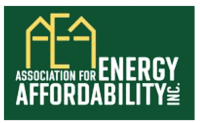Low-Interest Financing Options
State and Utility-Sponsored Loan Programs
- Description: New York State collaborates with utilities and capital firms to offer low-interest loans for energy efficiency projects, helping to reduce the initial financial barrier for homeowners and businesses.
- Programs:
- NYSERDA’s On-Bill Recovery Loan Program: Allows consumers to finance energy improvements through a loan that is repaid via an on-bill financing mechanism.
- Utility-Sponsored Loans: Utilities like National Grid and Con-Ed offer special financing options for energy-efficient upgrades through partnerships with financial institutions.
On-Bill Recovery Financing
- Overview: This financing option allows customers to pay for energy efficiency upgrades through a charge on their utility bill. The idea is that the energy savings from the upgrades will offset the loan payments, making it a cost-neutral option for the homeowner or building owner.
- Loan Types: Used for a variety of energy efficiency improvements, including insulation, HVAC systems, and renewable energy installations like solar panels.
- Loan Amounts: Varies based on the project, but the loan amount is typically matched to the expected energy savings.
- Interest Rates: Low-interest rates, typically set by the utility or state energy authority.
- Eligibility: Available to homeowners, small businesses, and multifamily buildings. Credit checks are generally required, and the building’s energy savings potential is assessed.
- Application Process: The application is made through the utility provider. After approval, the loan payments are added to the utility bill. The program often requires the use of certified contractors to perform the work.
- Website: On-Bill Recovery Financing
PACE (Property Assessed Clean Energy) Financing
- Overview: PACE financing is a unique option that allows property owners to finance energy efficiency and renewable energy projects through a special assessment on their property tax bill. The financing is repaid over a long term (up to 20 years), and the obligation stays with the property, not the owner, which means it can be transferred to a new owner if the property is sold.
- Eligible Projects: Can be used for a wide range of energy efficiency upgrades, including insulation, HVAC systems, solar panels, and water conservation measures.
- Loan Amounts: Generally determined by the value of the property and the projected energy savings. There’s no upfront cost to the property owner.
- Interest Rates: Typically fixed and competitive, often ranging from 5% to 8%.
- Eligibility: Available to commercial, industrial, and residential property owners. The property must be in a participating jurisdiction, and the owner must be current on property taxes and mortgage payments.
- Application Process: The application is submitted through a PACE provider. The assessment is added to the property tax bill and repaid over the agreed term. The project must be performed by approved contractors.
- Website: PACE Financing
NY Green Bank
- Overview: NY Green Bank is a state-sponsored investment fund managed by NYSERDA, dedicated to increasing the availability of financing for clean energy and sustainable infrastructure projects in New York State. It aims to mobilize private capital to support large-scale energy efficiency, renewable energy, and decarbonization projects.
- Target Audience: The program primarily targets commercial and industrial projects, including large multifamily buildings and infrastructure projects.
- Financing Details: NY Green Bank typically offers flexible financing options, including debt, equity, and credit enhancements. The investment sizes typically range from $10 million to $50 million, but NY Green Bank also collaborates with private lenders to mobilize larger amounts of capital.
- Application Process: Interested parties must submit a proposal outlining the project’s financial needs, anticipated environmental impact, and potential for market transformation. Projects are evaluated based on their ability to reduce greenhouse gas emissions and generate financial returns.
- Website: NY Green Bank
NYCEEC (New York City Energy Efficiency Corporation) Funding
- Overview: NYCEEC is a nonprofit green bank that provides financing solutions for energy efficiency and clean energy projects in buildings throughout New York City. NYCEEC offers a variety of loan products, including direct loans and predevelopment financing, aimed at reducing greenhouse gas emissions and promoting energy efficiency in residential and commercial buildings.
- Target Audience: NYCEEC funding is available to building owners, developers, and nonprofit organizations in New York City, with a focus on affordable housing and energy efficiency projects.
- Financing Details:
- Direct Loans: These are provided for energy efficiency upgrades, including HVAC systems, insulation, and renewable energy installations.
- Green Predevelopment Loans: These are specifically designed to cover the costs associated with predevelopment work before securing a construction loan. The typical loan size ranges from $40,000 to $60,000, with terms up to 18 months.
- Application Process: Applicants work directly with NYCEEC to secure financing. The process involves submitting detailed project plans and financial projections, and the loans are typically structured to be repaid through energy savings achieved by the project.
- Website: NYCEEC
Predevelopment Lending Program
- Overview: This program, offered through partnerships between NYCEEC and other local entities, provides low-interest loans for predevelopment activities necessary to advance clean energy projects. The program helps building owners and developers finance the early stages of project development, such as feasibility studies, design work, and securing permits.
- Target Audience: Geared toward multifamily building owners, developers, and nonprofit organizations in New York State, especially those working on affordable housing projects.
- Financing Details: Loans typically range from $40,000 to $60,000, with repayment terms of up to 18 months. The funding can be used to cover costs like environmental assessments, energy audits, and architectural and engineering services.
- Application Process: Building owners or developers interested in this program should contact NYCEEC or their partners to discuss their project and submit an application. The loan is often structured to be repaid through the primary financing secured once the project reaches the construction phase.
- Website: Predevelopment Lending Program



